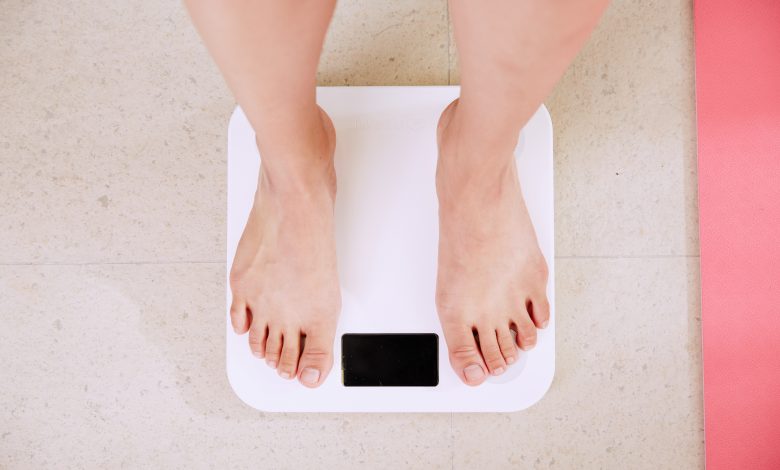
Can Illnesses Cause Weight Gain?
Weight gain is not only a result of the amount of food that is consumed. It is also not only because of the food group you eat daily that causes constant or excessive weight gain. There are several illnesses or medical conditions that can cause an individual to add weight gain. Just like there are conditions medically that contribute to weight loss, there are also some medical conditions that will result in weight gain. In this article, we will look into different medical illnesses that can cause weight gain.
Underactive Thyroid
Underactive thyroid is also referred to as hypothyroidism. It’s a medical condition that has a lot to do with the thyroid hormones in the body. This condition occurs when the body is deficient in thyroid hormones. The thyroid gland is responsible for the production of thyroid hormone, which helps regulate the rate of metabolism in the body. So if there is a reduction in hormone production, it leads to a slow metabolic rate. This implies that your body will be unable to shed fat quickly, and thus result in weight gain. However, the more this condition gets worse, the more weight gain. This can also be a way to detect low levels of thyroid hormones in the body.

Insomnia
Insomnia is a medical condition that causes the inability to sleep at the right time. This can result due to tiredness, depression, sadness, loss of friends or family, and so on. People battling with insomnia find it hard to sleep properly at night. Some may even wake up at intervals in the night and are unable to sleep again. According to W. Christopher Winter, M.D of Charlotteville Neurology and Sleep Medicine, individuals who have insomnia can experience weight gain. She further concluded that the body’s internal clock, which regulates many body processes, including metabolism, is altered. Insomnia can lead to overeating or eating unhealthy, which causes weight gain.
Depression
Depression is an emotional disorder that leads to a feeling of sadness, mood swings, unnecessary laziness, and low spirited. When someone is depressed, cortisol, also referred to as the stress hormone, is elevated in the body. This high level of cortisol can, in turn, cause body fat to accumulate, thus causing weight gain.
Fluid Retention
Fluid retention can also be called oedema in medical terms. This is caused by the accumulation of fluid under the surface of the skin between areas of tissue and the body’s organs. It is extremely common, especially in the feet and lower legs. This condition can also occur in another case, whereby it can simply be short term symptoms of standing up all day. It can also be a way to detect a more serious medical condition. The symptoms of this medical condition include: weight gain; soreness of the muscles, joints, and limbs; and changes in the color of the skin. Fluid retention can also be a symptom of pregnancy or disease of one of the internal organs – the heart, liver, or kidneys. It also is the side effect of oral contraceptives, corticosteroid, and treatment for high blood pressure. However, the symptoms for this condition (oedema) often clear up on its own, but if they still persist, you should see a doctor.
Polycystic Ovary Syndrome
This illness actually tends to occur among teenage girls or girls in their early 20s. This condition can happen when high levels of testosterone hamper the development of eggs in the ovaries. This is a condition that occurs such that the follicles where the eggs are being produced are not able to release them for ovulation. When all these happen, it can cause irregular periods and problems with fertility.
It can also cause other symptoms, such as excess hair growth or loss, weight gain, and acne. The androgens produced causes extra weight gained to sit around the waist, leading to problems such as heart disease and type 2 diabetes. According to research, there is no cure for Polycystic ovary syndrome, but it can be managed or regulated with lifestyle changes, medication, or a combination of both. However, people who have this condition can be prescribed weight loss medication or statin, and the use of fertility treatments can enable the majority of women with PCOS to give birth.

Peptic Ulcer Disease
According to the United States National Library of Medicine, peptic ulcer disease is a sore which develops on the lining of the duodenum. The duodenum is located on the topmost part of the small intestine. The peptic ulcer disease can also be referred to as duodenal ulcer. This results in severe pain in the abdomen, bloating, burping, vomiting, and so on. However, peptic ulcer disease doesn’t directly cause weight gain. Weight gain can occur as a result of excessive eating, which is a way to alleviate the pain. According to Elizabeth Lowden, M.D, an endocrinologist at Northwestern Medicine Regional Medical Group, in an interview with SELF, stated that people suffering from duodenal ulcer experience changes in their eating habits as a defensive means of suppressing the pain, thus causing weight gain.
Cushion’s Syndrome
This is a rare medical condition that is caused by an increase in the cortisol hormone. It is caused as a result of prolonged exposure to corticosteroid treatment or may also originate from the growth of a tumor in the pituitary gland. This can be called either endogenous cushion’s syndrome or cushion’s disease. Individuals suffering from this disease will start to gain weight, which affects the face, as well as the middle section of the body. Fat also builds in the area between the shoulders and back of the neck, forming a hump. Also, they tend to develop fragile skin, which causes it to peel easily, become discolored, and show stretch marks. High blood pressure is also a symptom of cushion’s syndrome, including brittle bones, problems with fertility, and depression. Cushion’s syndrome requires a long process to understand whether someone has it or not. Also, the symptoms may surface gradually and can be similar to those associated with hypothyroidism or high blood pressure. When diagnosed with this type of medical condition, the doctor in charge will manage your dosage of corticosteroids or issue you with treatments to prevent the effect.



